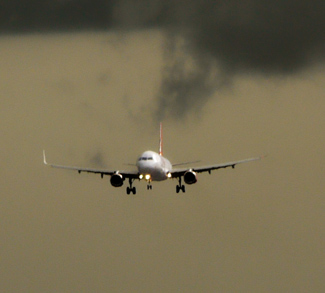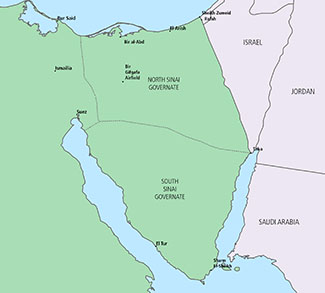Back in August, Geopoliticalmonitor.com reported on how Egypt’s Sinai region has become a hotbed of terrorist activity following the Arab Spring. Here is where drug runners, human traffickers, and extremist groups operate with impunity, safely out of the reach of a Cairo government whose writ has become more theoretical than feared.
Much of this has been enabled and even abetted by local Bedouin tribes who are sick of being treated as second class citizens (a more in-depth explanation can be found here). There’s also a strong Islamic State franchise operating in the Sinai, perhaps the strongest outside the Iraq-Syria region, called Sinai Province (formerly Ansar Beit el-Maqdis). Sinai Province has been waging a fierce campaign against government institutions in the Sinai, attacking judges, foreign workers, soldiers, and police throughout 2015. The terrorist group is thought to have anywhere from 1,000 – 1,500 active fighters in its ranks.
It’s impossible that a ground-fired missile could be behind the downing of KGL9268. The shoulder-launched missiles, or ‘MANPADs,’ that are available to Sinai Province fighters have an effective range of around 11,000 feet tops. It would take a much more sophisticated anti-air platform to take down a plane that was cruising at 31,000 feet, as was the case for KGL9268. Platforms like the Buk (SA-11) missile system which brought down MH17 over Ukraine have the effective range, but they require expert operators and training to operate; speak nothing of the fact that they’re still largely state-actor weapons which have yet to find their way into the transnational criminal nexus of the MENA region.




